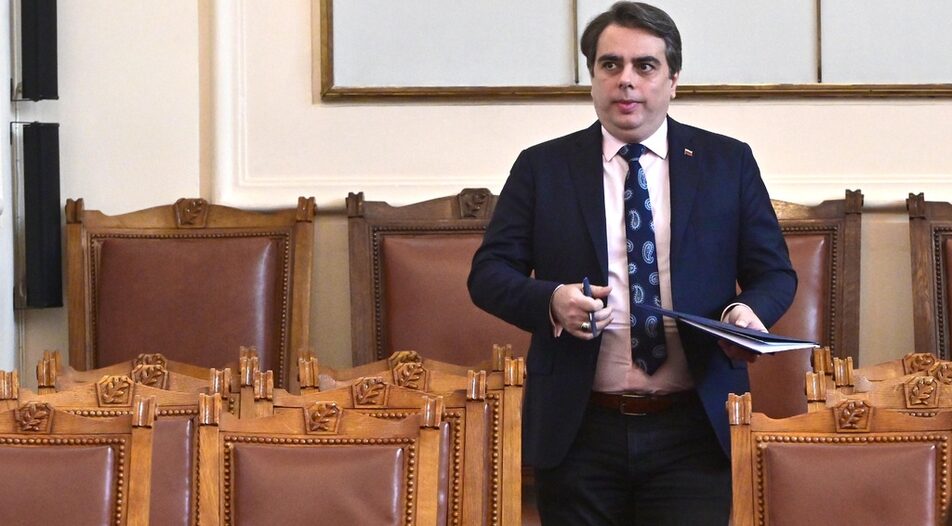A consolidated 2023 budget with a deficit equivalent to 2.5% of GDP on a cash basis and 3% on an accrued basis has been prepared by the finance ministry. This goal seems achievable as expectations are for less capital expenditure and more revenue from VAT and dividend payouts by state-owned companies. The other reason is that Bulgaria is going to receive a second payment under the EU's Recovery and Resilience Facility this year. Finance Minister Assen Vassilev unveiled the main parameters of the project last week. The government plans to submit it to parliament for approval in the first week of July and expects it to be adopted within a month.
The project doesn't predict changes in tax policy, with the preferential VAT rates for the supply of natural gas and district heating due to expire in the middle of 2023. The future of the other VAT reliefs will be decided in the autumn when the budget for 2024 is going to be prepared.
Vassilev said the draft budget is feasible. He added that even if Bulgaria doesn't receive a second tranche under the national Recovery and Reslilence Plan by the end of the year (expected at 724 million euro), this will affect the cash deficit, but not the accrued one, which is important for Bulgaria's stated intention to join the eurozone. Thus, the country will be able to meet the euro area criteria for budget deficit and debt, which the government hopes will happen in 2025.
What is changing
The finance ministry works with the macroeconomic framework adopted by the caretaker cabinet which it succeeded earlier this month, i.e. expectations are for 1.8% GDP growth to 184.486 billion levs in nominal terms, and average annual inflation of 7.8% in 2023. The expected nominal deficit is 4.582 billion levs, which is lower by 7.3 billion levs compared to the project of the caretaker cabinet.
Here is the math behind these assumptions:
- The state will ask its companies to pay it as dividend their entire profits reported for 2022, which will contribute 780 million levs to budget revenue.
- Nearly 1.5 billion levs will be disbursed as a second tranche under the National Recovery Plan. To receive the money, Bulgaria must adopt 33 laws and regulatory documents, including those regarding the announcement of public procurement procedures or, for example, the holding of tenders for new RES capacities, which are entirely in the hands of Energy Minister Rumen Radev.
- More VAT revenue is expected. According to Vassilev, the additional VAT amounts will increase the 2023 budget revenue by 3.56 billion levs compared to the project of the caretaker cabinet, to a total of over 69 billion levs.
- The finance ministry also foresees a reduction of some expenses. It expects less capital expenditure (down by 1.86 billion levs in comparison with the project of the caretaker cabinet) and fewer maintenance costs (down by 1.5 billion levs).
All planned salary increases at some public adminstration departments that did not receive any last year, as well as for teachers will be provided for in the 2023 budget. Pensions will increase by 12% from the middle of the year according to the plan. In addition, some other additional costs will be introduced, such as an increase of the child benefits paid out during the second year of maternity leave, higher scholarships, a fund in support of culture and sports.
The government debt-to-GDP ratio is not expected to increase from the level of around 24% recorded at the end of 2022. Regarding the debt policy, Vassilev announced that he will speak when the budget is ready. However, the state will have to seek financing of at least 4.6 billion levs from international debt markets to cover the projected deficit. At the beginning of the year, the government already placed 1.5 billion euro worth of bonds on international markets, but they only cover the debt maturing during 2023.
The adoption of this year's budget was announced as a priority of the new cabinet led by prime minister Nikolay Denkov. The task is urgent - for half a year now, the state has been operating under an extension to the 2022 budget, which allows it to spend no more than what it spent at the same time last year but bans any changes in fiscal policies.
A consolidated 2023 budget with a deficit equivalent to 2.5% of GDP on a cash basis and 3% on an accrued basis has been prepared by the finance ministry. This goal seems achievable as expectations are for less capital expenditure and more revenue from VAT and dividend payouts by state-owned companies. The other reason is that Bulgaria is going to receive a second payment under the EU's Recovery and Resilience Facility this year. Finance Minister Assen Vassilev unveiled the main parameters of the project last week. The government plans to submit it to parliament for approval in the first week of July and expects it to be adopted within a month.
The project doesn't predict changes in tax policy, with the preferential VAT rates for the supply of natural gas and district heating due to expire in the middle of 2023. The future of the other VAT reliefs will be decided in the autumn when the budget for 2024 is going to be prepared.












